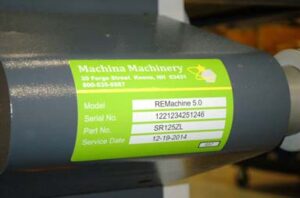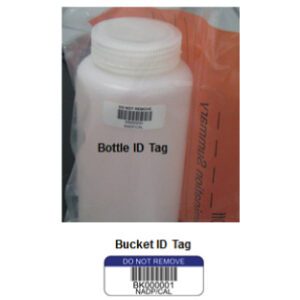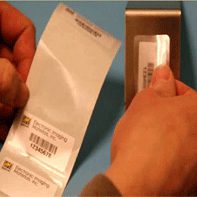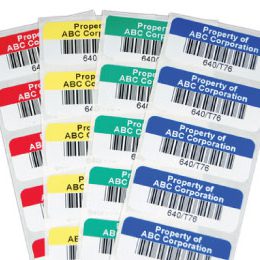Ah yes, vinyl. A classic when it comes to records, but also a modern multi-purpose material when it comes to labels. Vinyl label materials tout three key benefits that should make them a contender for your next labeling project: conformability, durability, and their lower cost.
Impressive Conformability
 The biggest benefit of vinyl labels is how well they adhere to curved surfaces. Their high level of conformability makes them an ideal option for labeling tanks and drums, vehicles, and construction/agricultural equipment. “A label with a vinyl face stock is ideal when the surface it’s being applied to is curved in multiple directions”, our Product’s Department comments, “The conformable properties of vinyl help keep the label bonded to the curved surface and prevents it from lifting over time”.
The biggest benefit of vinyl labels is how well they adhere to curved surfaces. Their high level of conformability makes them an ideal option for labeling tanks and drums, vehicles, and construction/agricultural equipment. “A label with a vinyl face stock is ideal when the surface it’s being applied to is curved in multiple directions”, our Product’s Department comments, “The conformable properties of vinyl help keep the label bonded to the curved surface and prevents it from lifting over time”.
Outdoor Durability
Outdoor environments present several challenging factors. Labels have to survive temperature fluctuation, exposure to the elements, and still stick to dirty/grimy surfaces. In addition to being UV resistant and waterproof, vinyl can withstand changing temperatures without being compromised. They’ll reliably stick in temperatures as low as -10 and as high as 90. Our vinyl material options all have different outdoor lifespans but are typically rated for 2-5 years of outdoor exposure. Looking for a more environmentally friendly option? Check out our green alternative to vinyl.
 Cost Effective
Cost Effective
Most extremely durable materials recommended for outdoor applications come with a high price tag. The circumstances outdoor labels endure mean that they require a very specialized solution. However vinyl can possibly deliver the durability you need, with a price tag that won’t break the bank. In comparison to polyester alternatives, vinyl is a more economical option.
Eager to hear more about how vinyl compares to our other materials? Let The Label Experts be your guide.




